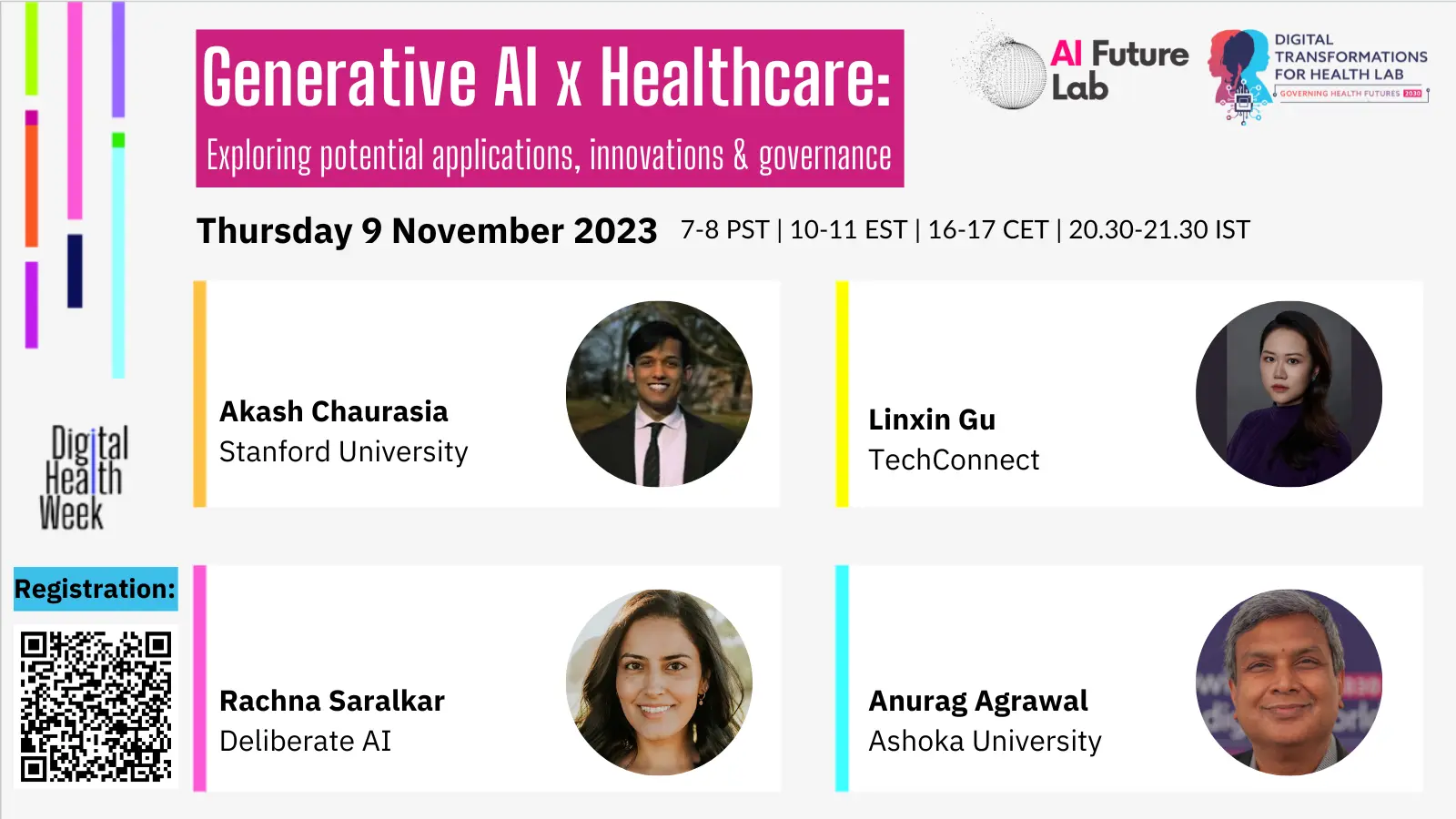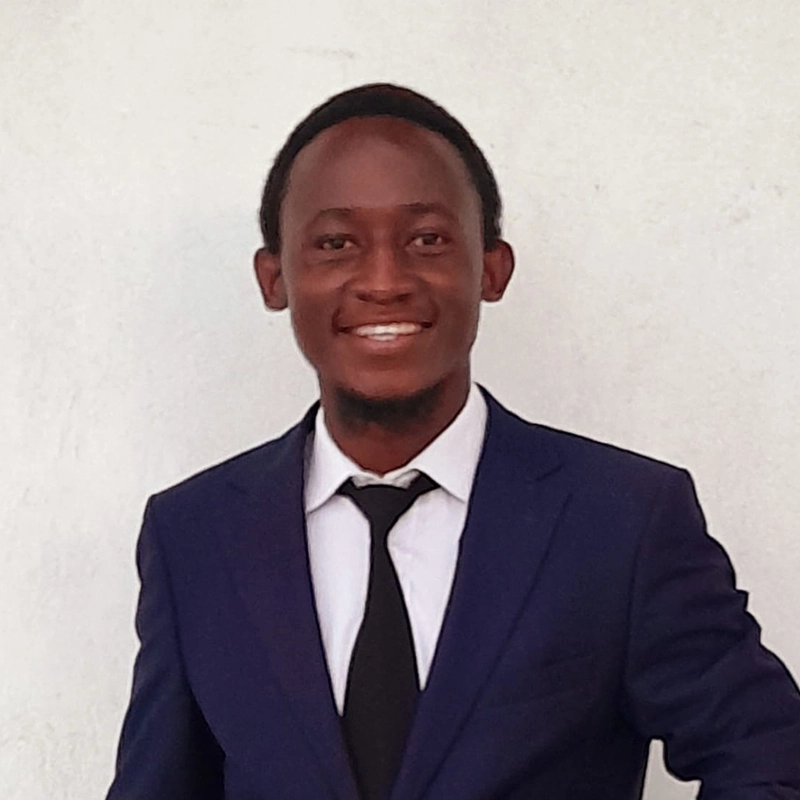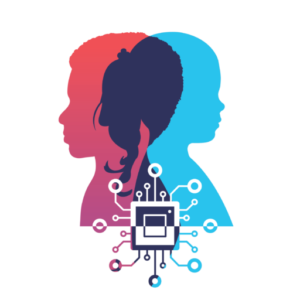Exploring Potential Applications, Innovations and Governance
In the ever-evolving landscape of artificial intelligence, the past month has been marked by a series of conferences emphasising the critical role of AI, especially in healthcare. Events like the G7 AI Process, OpenAI Developer Conference and the UK AI Safety Summit, underscored the global focus on this transformative technology. This surge in interest aligns with the recent executive order issued by the President of the United States, further emphasising the importance of AI, particularly in healthcare. Under the workshop series:
“Generative AI x Healthcare: Applications and Building Thoughtfully & Equitably”
The Digital Transformations for Health Lab (DTH-Lab) and AI Future Lab provided a dedicated platform for experts to delve into the nuances of generative AI in healthcare with its first workshop:
“The Future of Generative AI in Healthcare: Exploring Potential Applications, Innovations and Governance”.
The DTH-Lab is committed to the robust governance of digital technologies, with a key focus of this discussion on the ethical and governance challenges associated with generative AI in healthcare. Setting the stage for more responsible AI development while aligning with global visions for improved health outcomes, participants of Digital Health Week spanned different age groups and backgrounds but shared a universal curiosity towards this topic with nearly 200 people registered for the event. Mirroring the cross-generational appeal and significance of generative AI in healthcare, attendees expressed a spectrum of sentiments, from excitement and optimism to concerns about potential risks.
Speaker Insights:
Akash Chaurasia – Machine Learning Researcher at Stanford University School of Medicine:
Akash provided a comprehensive overview of generative AI, its applications, and its role in healthcare evolution transitioning through Healthcare 1.0 and 2.0, Akash envisioned Healthcare 3.0 in 2026, where generative AI becomes a versatile tool augmenting doctors’ workflows, simultaneously highlighting the transformative potential and acknowledging the responsibilities associated with its vast output space.

Figure 1: Healthcare 3.0
“The goal here isn’t to use generative AI to replace doctors. Rather, the goal is to support them in their work, offloading menial tasks that aren’t the best use of their time and helping them with clinical decision making. The final goal is to enable doctors to focus on doing what they love and being great at it, which is improving patient lives.” – Akash Chaurasia
Akash envisioned a future where generative AI addresses the medical literacy gap among patients, facilitating better communication.
Linxin Gu – Founder and CEO of Tech Connect
Linxin took the stage as the second speaker and explored the positive impact of generative AI in the biohealth sector, emphasising issues related to health data collection, modelling, and security. Touching upon venture schemes and various product aspects as well, Linxin explored the diverse applications of generative AI, from cell and gene therapy to mental health, emphasising customization based on cultural and regional factors.
“In cell and gene therapy, we can engage generative AI in upstream innovations on the biotech bench. Integrating generative AI into research can particularly assist to gain a deeper understanding of the complex contextual factors involved in genetic diseases, uncovering the intricate mechanisms underlying these diseases that provide valuable insights.” – Linxin Gu
Linxin’s focus on social impact and equity also showcased the potential of generative AI to address gaps in the digital era, particularly among the most vulnerable communities.
Rachna Saralkar – Medical Product Director at Deliberate AI
Rachna focused on a straightforward 4 quadrant framework composed of an x axis (tasks ranging from easy to hard for humans) and a y-axis (tasks varying from easy to hard for AI). By introducing ways in which generative AI is already transforming healthcare, such as case studies of how generative AI is being used for psychiatric and neurological disorders alongside its impacts and limitations, Rachna brought insights into the applications of generative AI in mental health. Her framework provided a structured perspective on the role of technology in healthcare and the need to address challenges, promote operational improvements and improve the understanding of AI models, while emphasising the need for careful consideration of its risks:
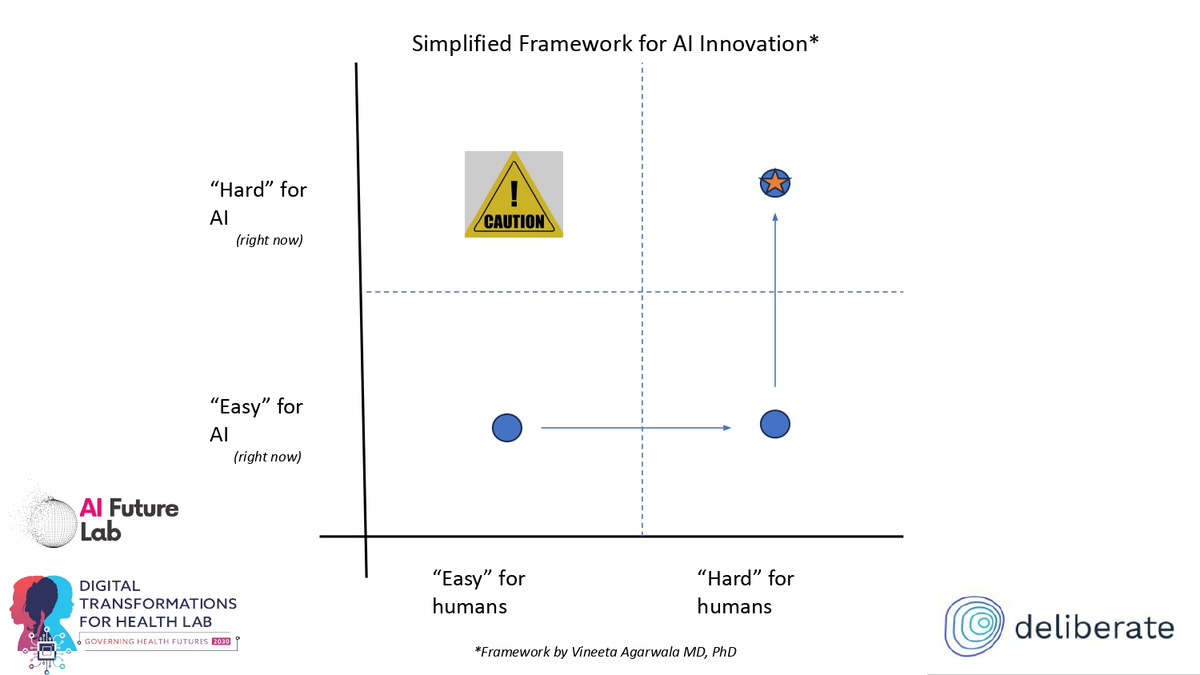
Figure 2: AI innovation Framework.
”This black box dilemma is something you all have probably heard of, in that it’s still not clear what’s going on inside these models. We don’t truly understand how the foundation models – that products like ChatGPT are built on – actually work. And then those models are further fine-tuned by a small set of humans, which likely introduces bias on top of the black box uncertainty.” – Rachna Saralkar
Rachna highlighted the potential for generative AI to reshape healthcare into a more accessible, efficient, and patient-centric landscape.
Dr. Anurag Agrawal – Dean of Biosciences at Ashoka University
Dr. Agrawal expressed gratitude for insights on the quadrant framework shared by Rachna, acknowledging its simplification of problem understanding. Focusing on the ethics and responsibility in algorithm development, he emphasised the human element in healthcare through a poignant cartoon, highlighting the centrality of empathy and genuineness in patient-professional interactions. He references Rachna’s quadrant reflecting tasks challenging for AI but easy for humans encompassing the majority of healthcare being provided, with personalised medicine posing a unique human-centric challenge.
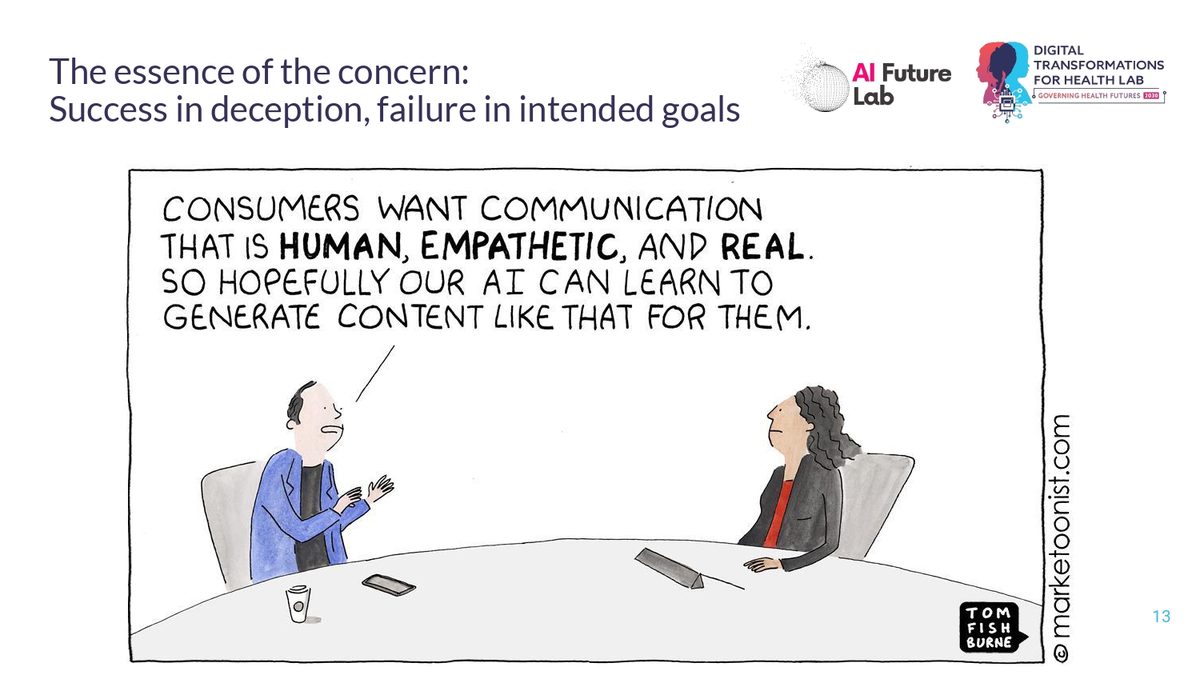
Figure 3: Ethics Cartoon
Addressing the criticality of accuracy, Dr. Agwal identified gaps in textbook coverage, particularly in female heart attack symptoms, and acknowledged the inherent biases in healthcare data.
New rules mandate that innovative content must have identifiable watermarks to distinguish all generated content…You cannot have the same rules for different people for different purposes, you can’t have it for different people with different credibility for different roles, especially in healthcare.” – Dr. Anurag Agrawal
Dr. Agrawal emphasised the need for identifiable watermarks in innovative healthcare content and advocated for data solidarity to tailor rules based on distinct purposes and roles.
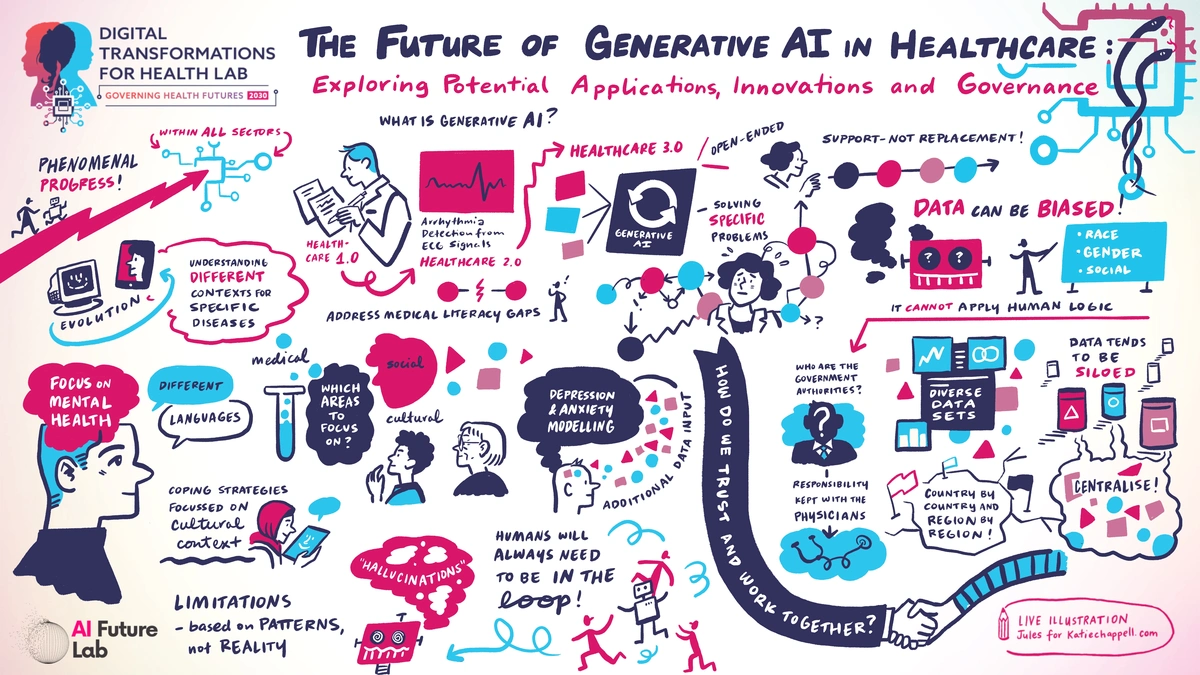
Conclusion
The panellists collectively stressed the significance of diversified datasets for optimal algorithm performance and the challenges in organising people to share their data. They acknowledged the criticality of education and training, particularly for clinical staff, for a smoother transition into the digital health space. The workshop concluded with a call to acknowledge varying paces of understanding among different generations and backgrounds, promoting the initiation of conversations within institutions and workflow improvements in the healthcare sector.
Authors
MA Monitoring and Evaluation BSc Economics and Statistics
Philip Yauma has a background in Economics and Statistics and is currently pursuing a Master’s degree in Monitoring and Evaluation at the University of Nairobi. He is a dynamic and results-driven professional specialising in project coordination, data analysis, research, and monitoring and evaluation.
BSc Biomedical Engineering
Connie is a United Nations ITU Generation Connect Youth Envoy and majors in biomedical engineering at the Chinese University of Hong Kong. She is dedicated to Internet Governance, digital transformation, and STEM for sustainable and inclusive development.
Bachelors of Laws – LLB
Tamoy is both a law student at the Norman Manley Law School, pursuing the Council of Legal Education Certificate (LEC) a budding Media Personality and dedicated to social impact. Her publications range from feature stories, environmental issues, political and legal commentary
